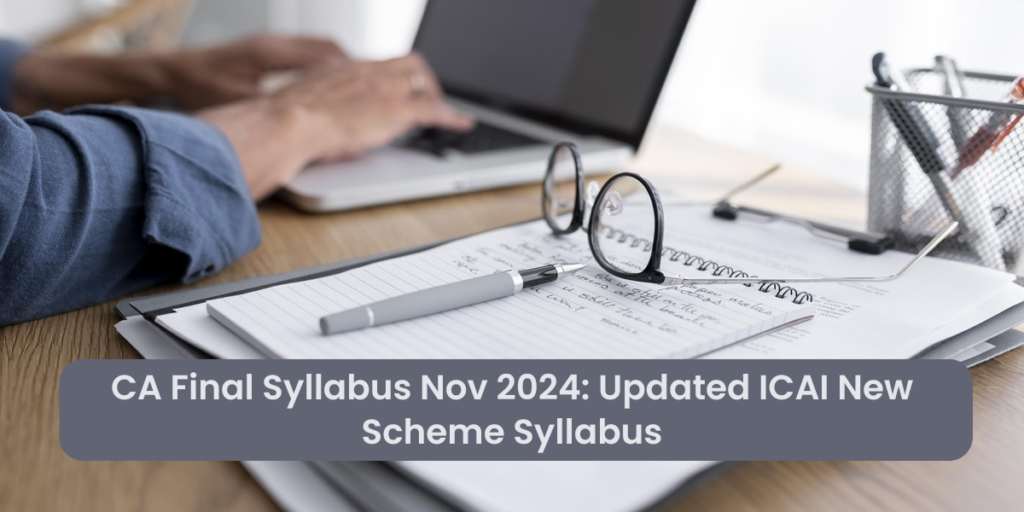What to Do After the CA Intermediate September 2024 Exam?
Amit Bachhawat Training Forum
Congratulations on completing the CA Intermediate September 2024 exam! This phase marks a crucial milestone in your journey to becoming a Chartered Accountant. After months of intense study and dedication, it’s time to reflect, recharge, and plan your next steps strategically. Whether you’ve cleared both groups or are still awaiting results, this guide will help you make the most of this transitional period.
1. Relax and Rejuvenate
After months of rigorous preparation, it’s essential to take some time off. Your mind and body need rest to function optimally for the next stage of your CA journey.
- Travel: Plan a short trip to unwind and explore new places.
- Hobbies: Rekindle your interest in hobbies like music, art, or reading.
- Family & Friends: Spend quality time with your loved ones to recharge emotionally.
This period of relaxation will help you recover from exam stress and gear up for the challenges ahead.
2. Evaluate Your Performance
Before moving forward, take some time to reflect on your exam experience.
- Identify Strengths: Which topics or sections did you handle confidently?
- Analyze Weaknesses: Were there areas where you struggled? This insight will be helpful if you need to reattempt any paper.
- Plan Future Strategy: Use your observations to develop a strategy for future exams, ensuring you build on your strengths and work on weak areas.
3. Plan for Articleship
Articleship is a crucial component of CA training, offering hands-on experience that bridges theory with practice. Selecting the right firm can significantly impact your career trajectory.
- Choose Wisely: Research firms offering exposure in areas like audit, taxation, and consultancy based on your interests.
- Prepare Early: Update your resume with your educational achievements and any relevant experience, such as internships.
- Apply Early: Some firms open hiring well in advance, so keep an eye on opportunities and submit applications proactively.
4. Prepare for CA Final
Though results may still be pending, starting your CA Final preparation early can provide a strong foundation.
-
- Focus on Core Subjects: Begin with subjects like Financial Reporting, Strategic Financial Management (SFM), and Direct Taxation.
- Organize Study Material: Gather updated notes and reference books to ease your future study efforts.
- Create a Study Schedule: A head start will give you more time to understand complex topics and reduce pressure closer to exams.
5. Join Online Courses for Skill Enhancement
Skill development is crucial to complement your CA qualification. Enroll in online courses to boost your technical and practical skills.
- Popular Courses: Excel, Financial Modelling, GST, and MS Office.
- Certifications: Explore advanced certifications like Diploma in IFRS or Data Analytics for Finance Professionals to enhance your profile.
These skills will not only support you during articleship but also add value to your long-term career prospects.
6. Explore Internship Opportunities
While waiting for exam results or articleship to begin, consider taking up short-term internships.
- Internship Options: Look for internships in finance, taxation, auditing, or business management.
- Build Professional Skills: Internships provide exposure to real-world business environments and help develop practical insights.
- Gain an Edge: A well-rounded internship experience will prepare you better for articleship interviews and the CA profession.
7. Prepare for Group II (If Pending)
If you have only completed Group I, now is the perfect time to focus on Group II subjects.
- Make a Study Plan: Divide topics based on weightage and start with difficult subjects.
- Stay Consistent: Set realistic goals and follow a disciplined study schedule to ensure consistent progress.
- Use Resources Wisely: Take advantage of online classes and revision notes to simplify your preparation.
8. Stay Updated with Amendments
Tax laws, accounting standards, and auditing regulations are constantly evolving. Staying updated is critical for both articleship and CA Final preparation.
- Follow Forums: Engage with professional forums to stay informed about recent amendments and updates.
- Attend Webinars: Join online workshops or webinars that focus on industry changes and exam-relevant topics.
- Make Notes: Create a habit of maintaining notes on key amendments for quick revision before exams.
9. Join Professional CA Student Communities
Networking plays a crucial role in career development. Being part of CA student communities provides peer learning opportunities and valuable industry connections.
- Join Online Communities: Participate in CA student groups on LinkedIn, Telegram, or Facebook.
- Attend CA Events: Seminars, workshops, and webinars are great places to meet professionals and fellow students.
- Collaborate: Share resources, solve queries, and support each other throughout your CA journey.
10. Focus on Personal Development
Personal growth is just as important as academic success. Developing essential skills will help you excel during articleship and in your professional career.
- Time Management: Learn to manage multiple tasks efficiently, which will be essential during articleship.
- Communication Skills: Strong communication is key for client interactions and professional relationships.
- Public Speaking: Join workshops or clubs like Toastmasters to improve your presentation skills.
Reading books on self-development and attending personal growth webinars can also enhance your confidence and help you thrive in the competitive CA field.
Conclusion
The period following your CA Intermediate exam is a golden opportunity to relax, reflect, and plan for the next phase of your journey. Whether it’s preparing for articleship, working on personal development, or focusing on Group II subjects, every step you take now will shape your future as a Chartered Accountant. Make the most of this time, stay proactive, and embrace continuous learning. You are wishing you all the best for your results and the exciting journey ahead!
Stay motivated and keep moving forward. Success is just around the corner!












